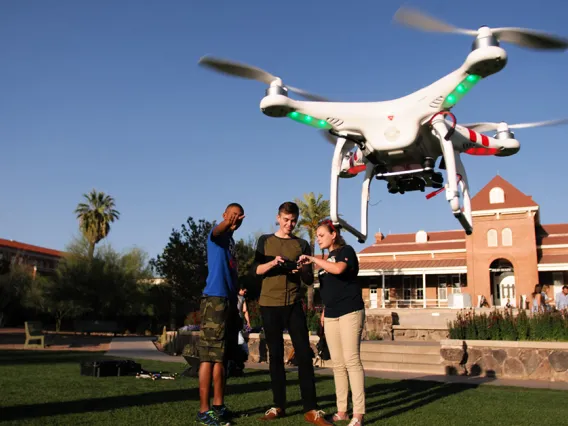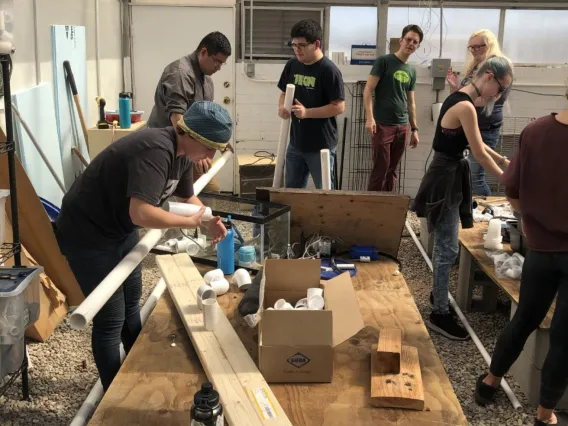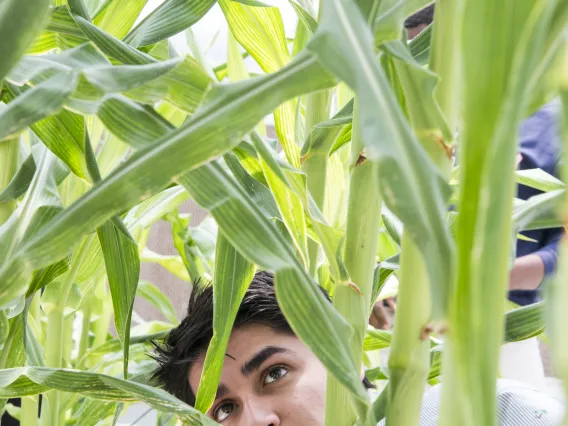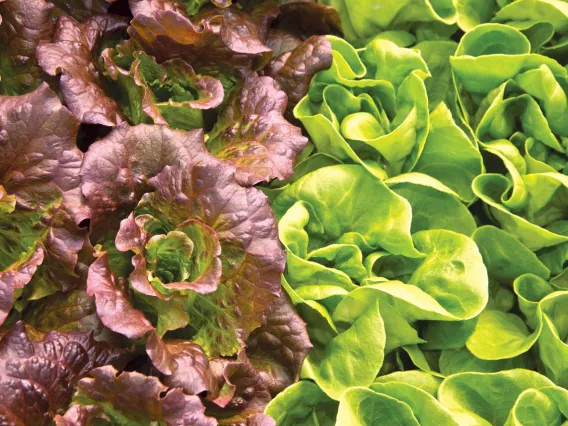B.S. in Sustainable Plant Systems
Your perfect world is thriving and diverse, and you have the fresh perspective needed to grow a sustainable future.
Our sustainable plant systems program integrates basic and applied plant and soil science in a way that gives you practical experience in laboratory and field settings while also learning scientific principles and approaches to innovate and develop new techniques in plant production and management. You will earn a skill set suited for careers in field and greenhouse plant production, urban forestry, public garden management, and fresh produce safety.
Why Major in Sustainable Plant Systems?
You want to create plant-based solutions to produce food, clothing, fuels and pharmaceutical products, and you want to turn that desire into a rewarding career. The sustainable plant systems program prepares you to be a leader in 21st-century agriculture and an expert in the use of technology, science and cultural practices to generate innovations in plant production and crop improvements with sensitivity to resource conservation and ecological context.
Through rigorous training in basic sciences and practical experiences, you will be prepared to enter careers in research, agronomic and horticultural field and greenhouse crop production, marketing of agricultural and ornamental crop plants, food safety, green infrastructure, and related green industries.
A degree in sustainable plant systems prepares you for careers in food production, renewable energy, medicine, agriculture and manufacturing. It also can serve as a springboard for graduate school. According to the U.S. Bureau of Labor Statistics, the median pay for careers related to agricultural and food science was $76,400 per year with a faster-than-average job growth overall (2023).
There are a variety of career opportunities available to students who complete a B.S. in Sustainable Plant Systems, including:
- Agronomist: Manage soil and field crop production, conduct research, and develop production practices and new crop varieties.
- Horticulturist: Work in fields and greenhouses to cultivate high-value, specialty crops and provide consultation to landscape architects about ecologically sustainable grounds-management practices.
- Botanist: Study plants and their environment to identify and classify new species.
- Plant geneticist: Research and work to identify genes useful in developing desirable plant traits, with jobs in public and private sectors.
- Education and advocacy: Work in museums, public parks or government positions to educate policymakers and communities about the importance of plants and thoughtful stewardship of the world’s natural resources.
As a sustainable plant systems student, you’ll gain knowledge and valuable skills in modern agriculture. Courses required to complete a B.S. in Sustainable Plant Systems are subject to change, so remember to meet with your advisor regularly to review your course plan.
Sustainable plant systems students have the unique opportunity to gain fundamental and practical experience in the classroom, lab and field with courses like the following:
- Plant Biology
- Applied Plant Physiology
- Soil Fertility & Plant Nutrition
- Insect Pest Management
- Introductory Plant Pathology
- Animal and Plant Genetics
Program emphases
Our program lets you specialize in controlled environment agriculture, urban horticulture, agronomy, or fresh produce safety.

Agronomy
Prepare for careers in sustainable agriculture, agribusiness, soil conservation and commodities risk management.

Controlled Environment Agriculture
Prepare for careers in greenhouse management, horticulture, sustainable plant production, natural resources and business.

Urban Horticulture
Prepare for careers in landscape design and management, municipal gardens and urban horticulture.

Fresh Produce Safety (Yuma campus only)
This Yuma-based program prepares students for careers in food safety, sustainable agriculture, and government and regulatory fields.
